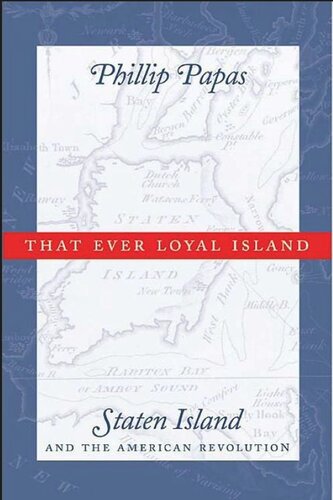

Most ebook files are in PDF format, so you can easily read them using various software such as Foxit Reader or directly on the Google Chrome browser.
Some ebook files are released by publishers in other formats such as .awz, .mobi, .epub, .fb2, etc. You may need to install specific software to read these formats on mobile/PC, such as Calibre.
Please read the tutorial at this link: https://ebookbell.com/faq
We offer FREE conversion to the popular formats you request; however, this may take some time. Therefore, right after payment, please email us, and we will try to provide the service as quickly as possible.
For some exceptional file formats or broken links (if any), please refrain from opening any disputes. Instead, email us first, and we will try to assist within a maximum of 6 hours.
EbookBell Team

0.0
0 reviewsOf crucial strategic importance to both the British and the Continental Army, Staten Island was, for a good part of the American Revolution, a bastion of Loyalist support. With its military and political significance, Staten Island provides rich terrain for Phillip Papas's illuminating case study of the local dimensions of the Revolutionary War.
Papas traces Staten Island's political sympathies not to strong ties with Britain, but instead to local conditions that favored the status quo instead of revolutionary change. With a thriving agricultural economy, stable political structure, and strong allegiance to the Anglican Church, on the eve of war it was in Staten Island's self-interest to throw its support behind the British, in order to maintain its favorable economic, social, and political climate.
Over the course of the conflict, continual occupation and attack by invading armies deeply eroded Staten Island's natural and other resources, and these pressures, combined with general war weariness, created fissures among the residents of “that ever loyal island,” with Loyalist neighbors fighting against Patriot neighbors in a civil war. Papas’s thoughtful study reminds us that the Revolution was both a civil war and a war for independence—a duality that is best viewed from a local perspective.